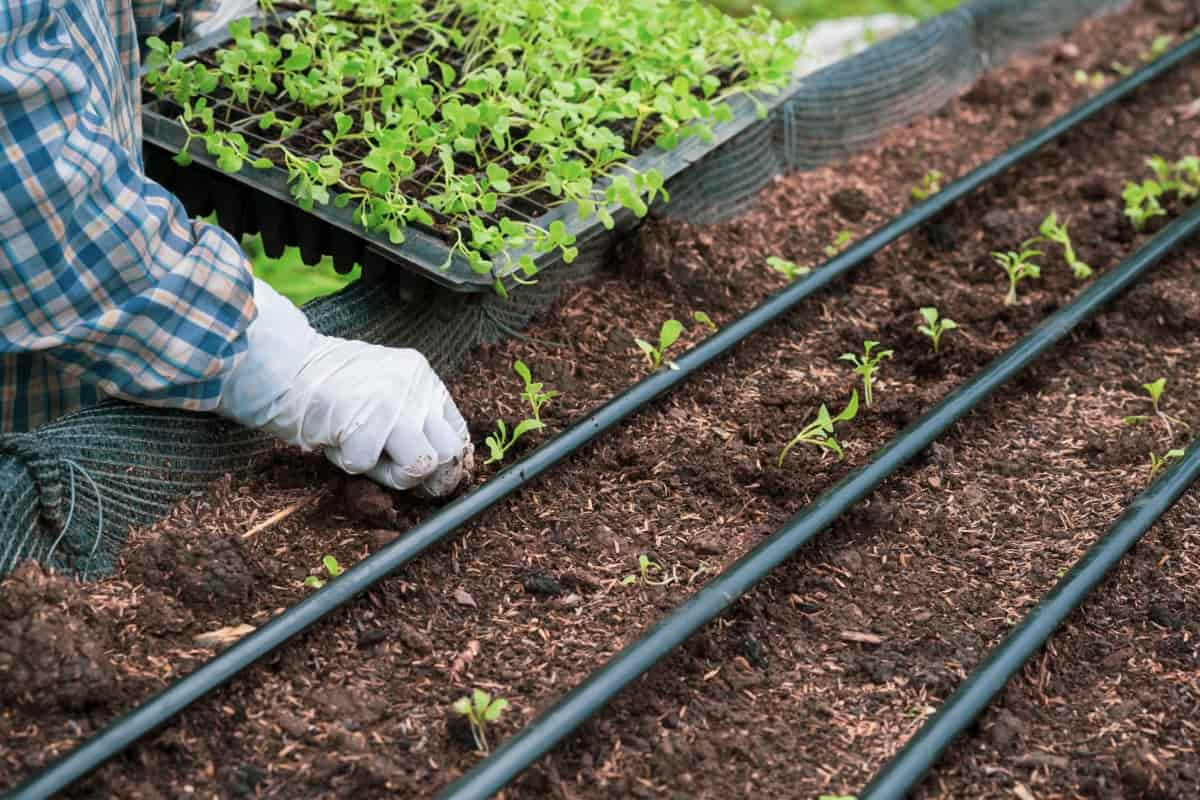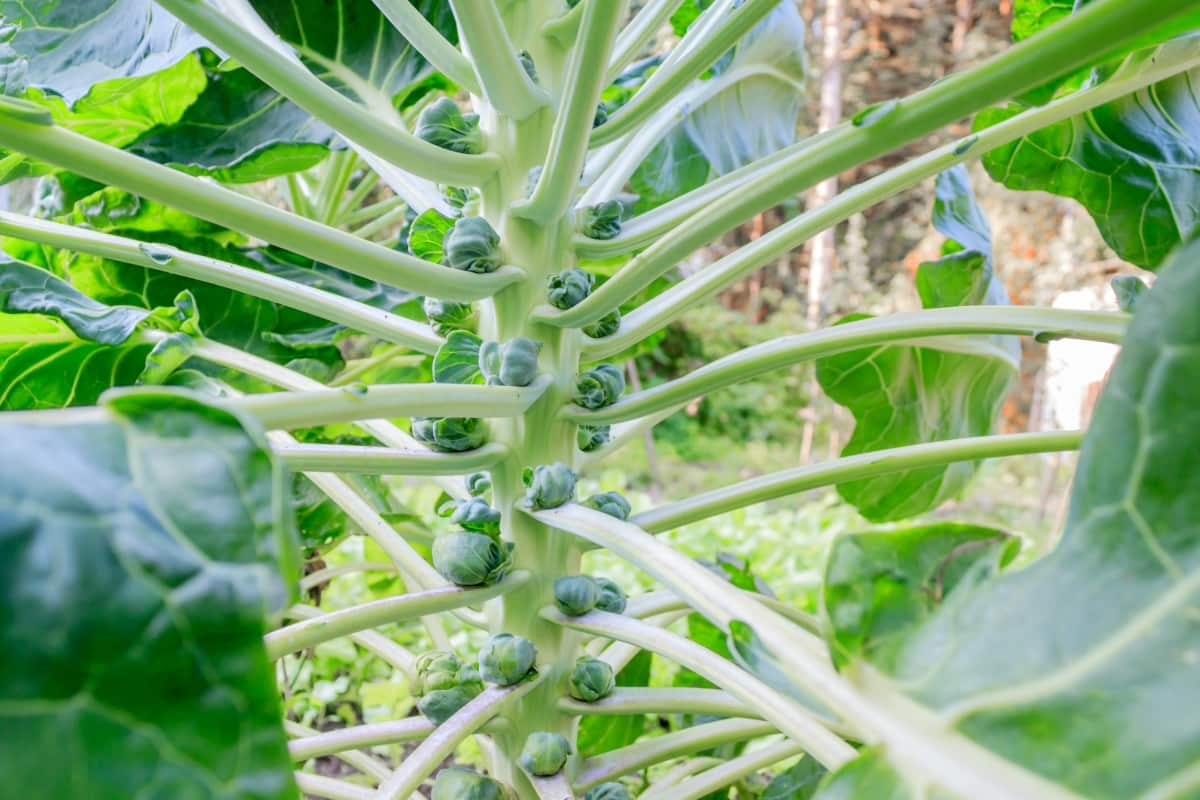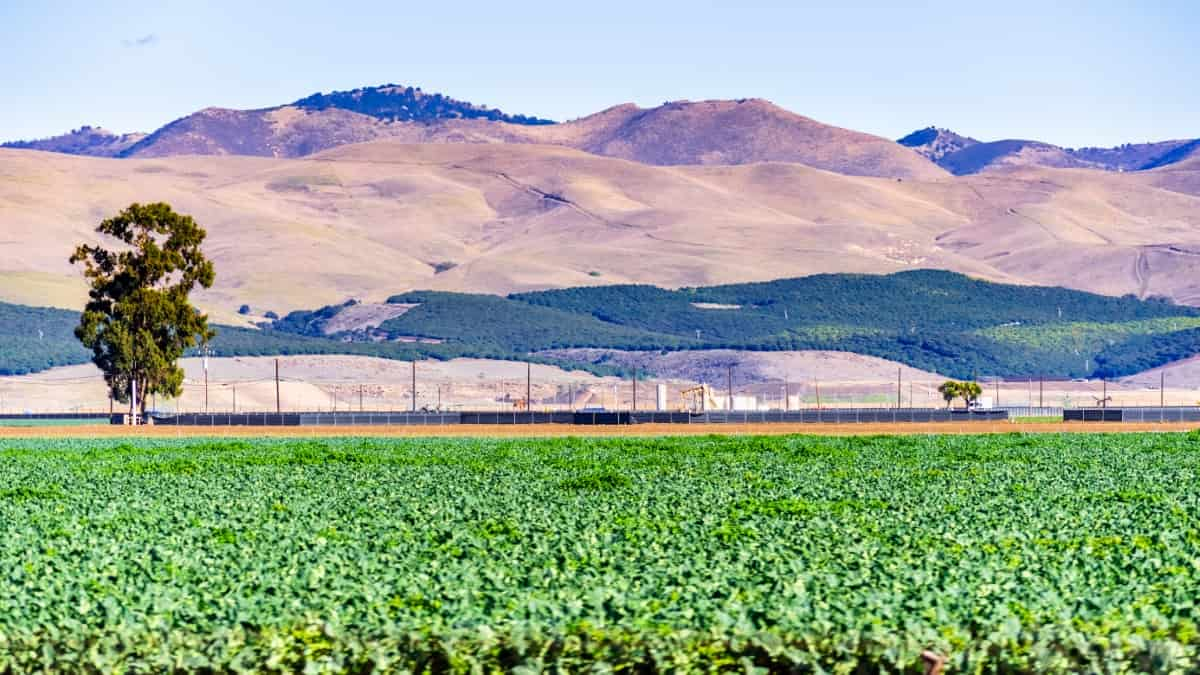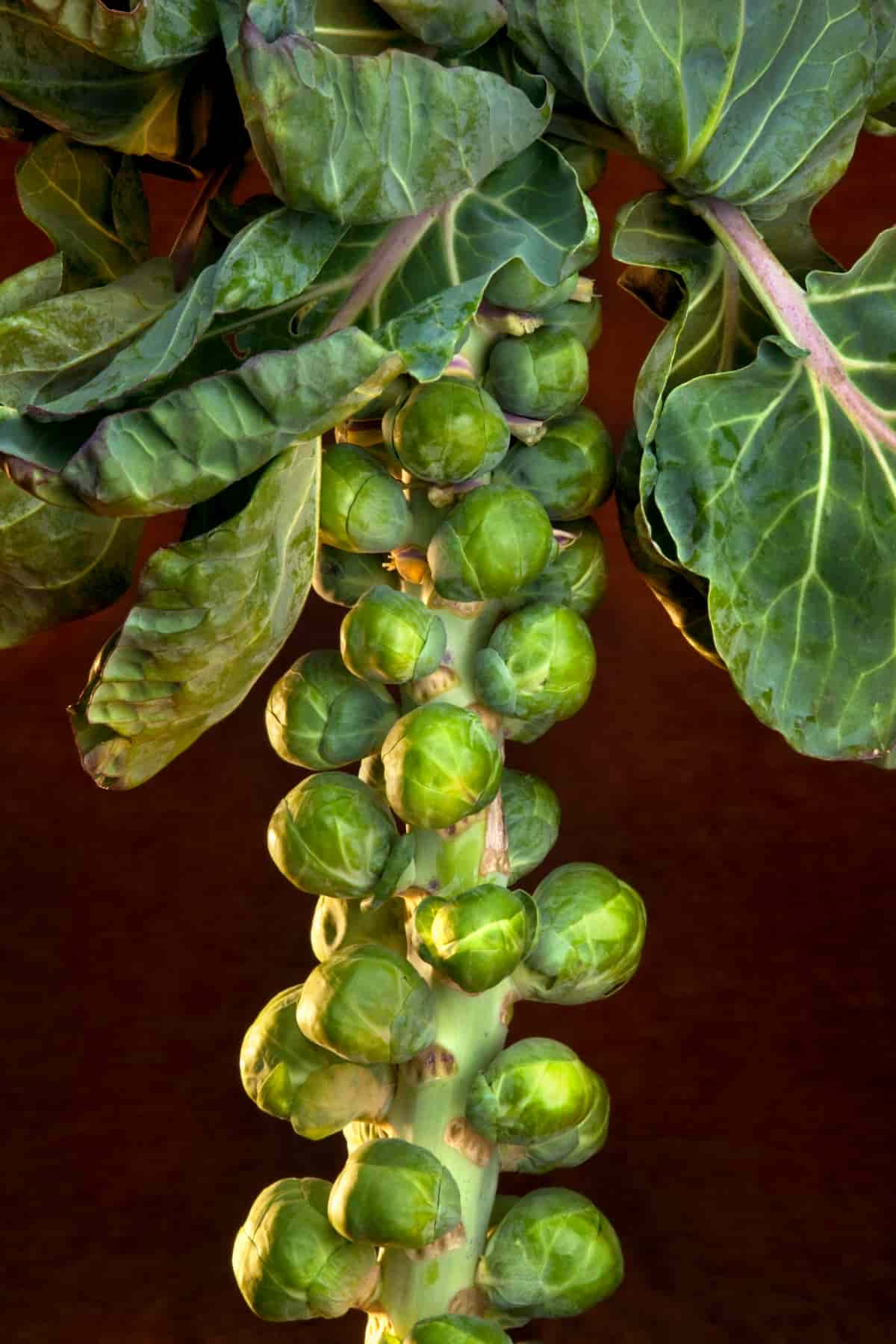Growing Brussels sprouts successfully requires good irrigation management, especially considering how to grow Brussels sprouts effectively during their growing season. The key is understanding their water needs, choosing the right irrigation system, optimizing irrigation schedules, managing soil moisture, implementing drip irrigation techniques, and utilizing mulching. This article delves into these aspects, offering guidance to ensure a healthy yield of Brussels sprouts through efficient water management.

Irrigation Management for Brussels Sprouts
Understand the Water Needs of Brussels Sprouts
To grow Brussels sprouts well, it’s crucial to understand their water needs. These plants thrive in moist soil but do not tolerate waterlogging. Their water requirements change throughout their growth stages, with increased needs during head formation. It’s important to keep the soil consistently moist but not soggy.
Overwatering can lead to root rot, while under-watering can result in poor head development. By understanding the delicate balance of moisture needed, growers can ensure their Brussels sprouts receive just the right amount of water, leading to healthy growth and bountiful harvests.
Choose the Right Irrigation System for Brussels Sprouts
Selecting the most suitable irrigation system is vital for Brussels sprouts. While overhead sprinkler systems are common, they may not be the best choice for these plants. Excess water on leaves can encourage disease, and uneven water distribution can lead to inconsistent growth.
On the other hand, drip irrigation systems deliver water directly to the roots, minimizing water waste and reducing the risk of leaf diseases. By choosing a drip system, growers can ensure their Brussels sprouts get the water they need right at the root zone, promoting healthier plants and better yields.
Optimize Irrigation Schedules for Brussels Sprouts
Optimizing irrigation schedules is key to successful Brussels sprouts farming. This involves watering at the right times and in the right amounts. It’s best to water early in the morning or late in the afternoon to reduce evaporation losses. The frequency and quantity of watering should be adjusted according to the plant’s growth stage, weather conditions, and soil type. Regular monitoring and adjusting the irrigation schedule as needed can help provide the Brussels sprouts with the optimum amount of water, boosting their growth and productivity.
Manage Soil Moisture Levels for Brussels Sprouts
Managing soil moisture levels is crucial for the healthy growth of Brussels sprouts. The soil should be checked regularly to maintain a balance – not too wet or too dry. A soil moisture meter can provide accurate readings, helping determine when watering is necessary. Proper drainage is also important to prevent waterlogging. By maintaining the right soil moisture level, growers can prevent problems like root rot and promote the development of strong, healthy Brussels sprouts.
In case you missed it: How to Prepare the Soil and Plant Brussels Sprouts

Implement Drip Irrigation Techniques for Brussels Sprouts
Implementing drip irrigation techniques can greatly benefit Brussels sprouts farming. Drip irrigation efficiently delivers water directly to plant roots, minimizing water wastage and mitigating the risk of leaf diseases. It allows for precise control over the water delivered, ensuring that plants receive enough water without being overwatered.
This method is particularly effective during dry periods, ensuring Brussels sprouts get the necessary moisture for growth. Farmers can significantly improve water efficiency and yield quality in their Brussels sprout cultivation by using drip irrigation.
Utilize Mulching for Efficient Irrigation in Brussels Sprouts
Utilizing mulching is an excellent strategy for efficient irrigation in Brussels sprouts farming. Mulch helps retain soil moisture, reducing the frequency of watering. It also stabilizes the soil temperature and prevents weed growth, which can compete with Brussels sprouts for water. Organic mulches like straw or bark can enrich the soil as they decompose. By incorporating mulching into their irrigation practices, growers can enhance soil health, conserve water, and promote the vigorous growth of their Brussels sprouts.
Address Water Stress in Brussels Sprouts through Irrigation
Addressing water stress in Brussels sprouts through proper irrigation is essential for their growth and development. Excessive or insufficient watering can greatly affect the well-being and productivity of these plants. Implementing an irrigation system that provides consistent and adequate water can prevent stress. Monitoring the plants for signs of water stress, like wilting or yellowing leaves, and adjusting the irrigation accordingly ensures that Brussels sprouts remain healthy and thrive throughout their growing season.
In case you missed it: Utilizing Cover Crops in Brussels Sprouts Farming Systems

Minimize Water Loss through Evapotranspiration in Brussels Sprouts
Minimizing water loss through evapotranspiration is crucial in Brussels sprouts cultivation. Evapotranspiration, which involves the transfer of water from the Earth’s surface to the atmosphere through a combination of soil evaporation and plant transpiration, can result in substantial water loss.
Techniques like drip irrigation, which targets water directly to the plant roots, and mulching to reduce soil surface evaporation can effectively minimize water loss. By implementing these practices, farmers can ensure that their Brussels sprouts receive the maximum benefit from each watering, leading to more efficient water use and healthier crops.
Irrigation Management Practices to Enhance Nutrient Uptake in Brussels Sprouts
Effective irrigation management practices are key to enhancing nutrient uptake in Brussels sprouts. Proper irrigation promotes healthy root development, which is essential for nutrient absorption. Over or under-watering can impede roots’ ability to take up nutrients. Using an irrigation system that delivers water evenly and at optimal intervals ensures that the soil maintains adequate moisture for nutrient uptake. Balanced watering practices and good soil fertility help Brussels sprouts absorb the necessary nutrients for robust growth.
Adapt Irrigation Strategies for Different Growth Stages of Brussels Sprouts
Adapting irrigation strategies for the different growth stages of Brussels sprouts is crucial for their development. Each growth stage—from seedling to mature plant—has unique water requirements. Maintaining consistent moisture is vital for germination and seedling growth in the early stages.
In case you missed it: Pest and Disease Management in Brussels Sprouts: Strategies for Healthy Brussels Sprouts Farming

As the plants mature, their water needs increase, particularly during head formation. Adjusting the watering frequency and amount based on these growth stages can significantly impact the quality and yield of the Brussels sprouts. Tailoring the irrigation to meet the plants’ specific needs at each stage ensures they grow healthily and produce well.
Conclusion
Efficient irrigation management is a cornerstone of successful Brussels sprouts cultivation. Understanding and addressing the specific water needs of Brussels sprouts, choosing the right irrigation systems, optimizing schedules, managing soil moisture, and adapting strategies to different growth stages are all critical factors.
- Ultimate Guide to Ossabaw Island Hog: Breeding, Raising, Diet, and Care
- Ultimate Guide to Juliana Pig: Raising Facts, Size, Diet, Care, and Lifespan
- Raising Lleyn Sheep: Disadvantages, Price, Uses, Characteristics, and Care
- Ultimate Guide to Meishan Pig: Breed Facts, Breeding, Raising, and Care
- Ultimate Guide to Teacup Pigs: Raising, Diet, Lifespan, Cost, and Care
- Guide to Raising Poll Dorset Sheep: Facts, Profile, Characteristics, Uses, and Care
- Ultimate Guide to Bighorn Sheep: Characteristics, Diet, Lifespan, Breeding, and Lifecycle
- Ultimate Guide to Raising Katahdin Sheep: Farming Facts, Breed Profile, Uses, and Care
- Ultimate Guide to Raising Oreo Cows: Belted Galloways Farming Facts, Profile, Uses, and Care